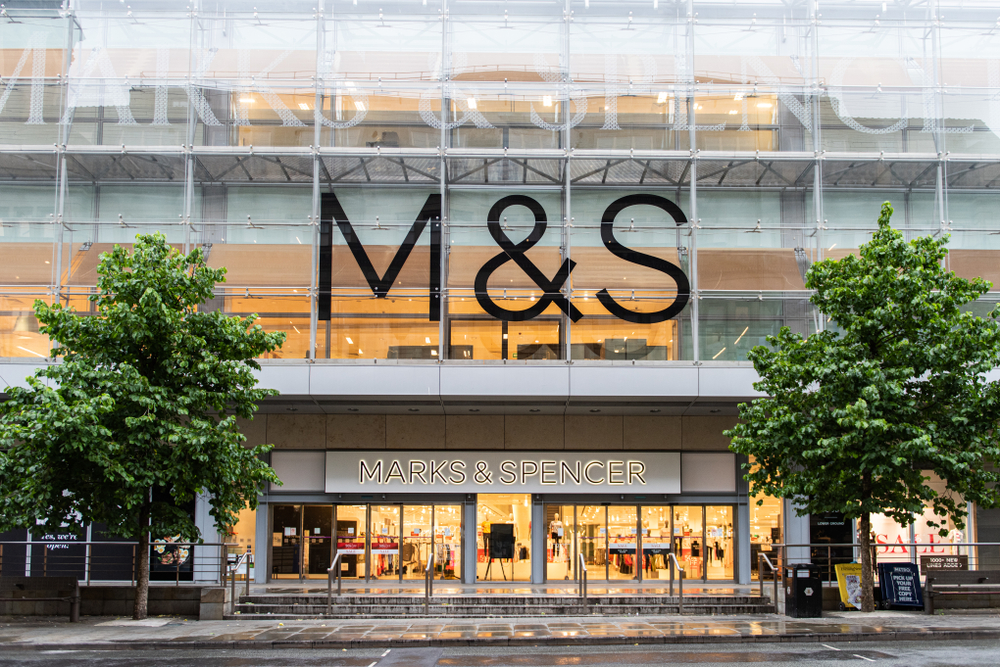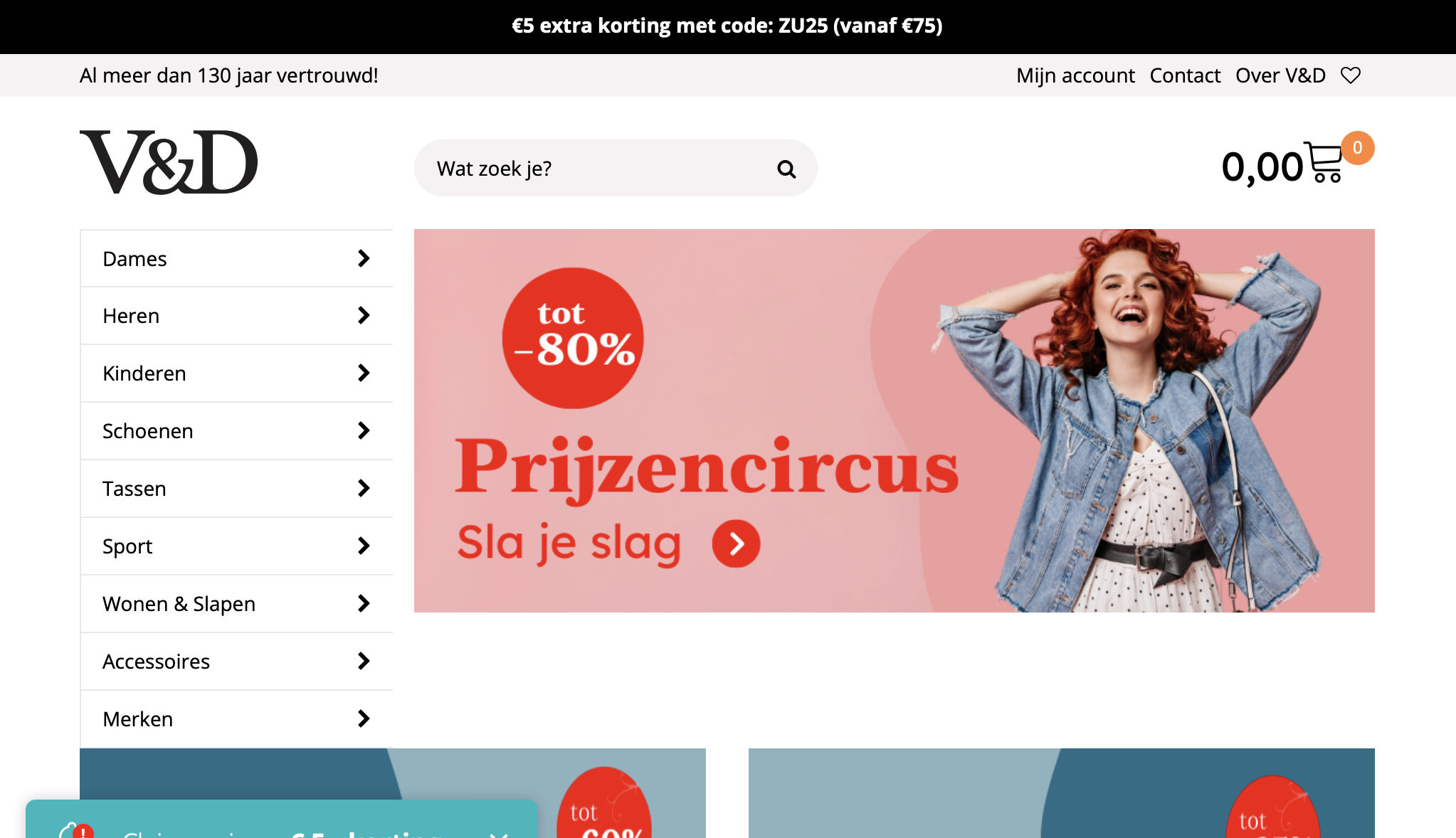Next today reports growing sales and profits in the first half of its financial year, but has cut its full-year sales and profits expectations as “two cost-of-living crises” threaten.
The retailer says sales were ahead of expectations in a “good” first half, as its retail stores overperformed, but online sales fell back following a pandemic peak. Profits grew by 15.5% in the first half, but Next is now moderating its expectations for the full year in an “uncertain” environment that chief executive Simon Wolfson says may well mean two cost of living crises in coming months.
“Success through adversity will not depend on our ability to foresee the future,” says Next chief executive Simon Wolfson in his half-year review today. “It will depend on how well we adapt the business; to recognise and face up to whatever challenges materialise and seize the opportunity that will inevitably arise. So that when the store has passed, Next emerges a stronger and better buiness than it is today. To that end, our priorities are clear.”
Those priorities include improving operating efficiencies, delivery speed and consistency, improved website navigation and search, at a time when online sales are falling back from pandemic highs. It will also add new suppliers to help mitigate the devaluation of sterling – a factor that it expects will prolong inflation even after production costs ease. “It looks we may be set to have two cost of living crises: this year, a supply side led squeeze, next year a currency-led price hike as devaluation takes effect,” says Wolfson.
The retailer says that the current financial crisis – coming as the value of the pound falls sharply against the dollar and the price of government borrowing rises – is at root a problem of supply and that only measures that increase the supply of goods, energy, services and skills can cure the underlying problems. It points to overhaul of the planning system, relaxation of controls on economic migration, energy market reform and the liberalisation of trade tariffs as the way forward. Wolfson was a high-profile backer of Brexit, which introduced new trade barriers between the UK and Europe and limited freedom of movement from the continent. He also suggests reviewing capital expenditure, by identifying projects that “deliver little value” to reduce borrowing. “Without prejudging it, HS2 would be top of our list for review,” says Wolfson in his review.
He adds: “Supply side measures are economically simple but politically difficult. Inevitably, supply side reforms challenge powerful and vocal vested interests, along with some genuine public concern. It is many years since we have seen a government as ambitious and willing to tackle supply side reforms. They will need all that ambition if additional growth is to cover the cost of their stimulus package.”
Half-year figures
The update comes as Next today reports revenues of £2.4bn in the 26 weeks to July 30 2022. That’s 12% up on the same period last year. Online sales of £1.4bn were 5% down on last time, but in-store sales of £880.5m were up by 63%. Full-price sales were 1% down compared to pre-pandemic 2019.
Pre-tax profits of £400.6m were 15.5% ahead on the £346.7m reported last time. Profits in Next’s online business fell to £208.3m from £318.0m last time – which the retailer puts down to rising logistics inflation, increased spending on technology and a return to more normal returns rates – while in-store retail sales recovered to a profit of £100.6m from a loss of £17.8m last time.
Next has now reduced its full-year profits expectations to £840m from £860m. The figure remains 2.1% ahead of last year. It also expects that sales will be 1.5% down on last year – rather than the 1% increase previously expected. It expects that net debt peaked in August at £1.035bn, and will end the year at £770m, giving it headroom of £550m.
Since the end of the half-year, Next says that while sales fell in August, they have returned to growth in September.
Third-party brands
Next’s Label business sells third-party brands through the Next website and saw full-price sales grow by 20% on last year, to £406m, and by 105% – from £199m – compared to the same period in pre-pandemic 2019.
Total Platform strategy
Next says it has learned “important lessons” about its Total Platform business and strategy – including that it works best for brands with a “critical mass” – and online sales of at least £30m. The Total Platform business operates online businesses for third-party brands, charging a commission on the value of sales. It is now operating the online businesses of Laura Ashley, Victoria’s Secret, GAP, JoJo Maman Bébé and, added most recently, Reiss – its largest client to date – and has taken an equity stake in all except Laura Ashley.
Smaller clients Childsplay and Aubin are now transitioning to a different business model. Next says in today’s statement: “The effect of working with smaller clients on TP is similar to delivering a bedside table in an articulated lorry. Our TP business is geared up for dealing with large worldwide data flows, high SKU counts, big company security systems etc. The fixed costs associated with running such a high capacity system have proven cost prohibitive for smaller clients.”
In the half-year Next made £6.1m in group profit from continuing Total Platform clients – £1.2m in business profit and £4.9m from its stakes in those clients – and expects that to rise to £21m in the year to January 2023. Currently profit margins are expected to come in at 2.9% this year for continuing clients – below its target of between 5% and 7%. This underperformance, it says, is both because of one-off start up costs, and because its ongoing costs have been higher than expected, in part because of the effect of inflation.
It says it will not now have the capacity to take on any further Total Platform clients until new warehouse picking capacity is fully operational in the third quarter of 2023.
Sustainability update
Next aims to take avoidable plastics out of its packaging by 2025, and is now rolling out collection points for customers to return plastic packaging for recycling, and then aims to reuse the materials it collects in new packaging. All of its plastic packaging will be recycled where possible. It is also reducing the use of plastic packaging for click and collect orders.
The retailer is a founding member of Textiles 2030, which aims to move the UK fashion towards a circular economy, and last year joined the Global Fashion Agenda’s Circular Fashion Partnership to support textile recycling in Bangladesh. It has a mattress recycling programme and helps customers to donate unwanted furniture.









